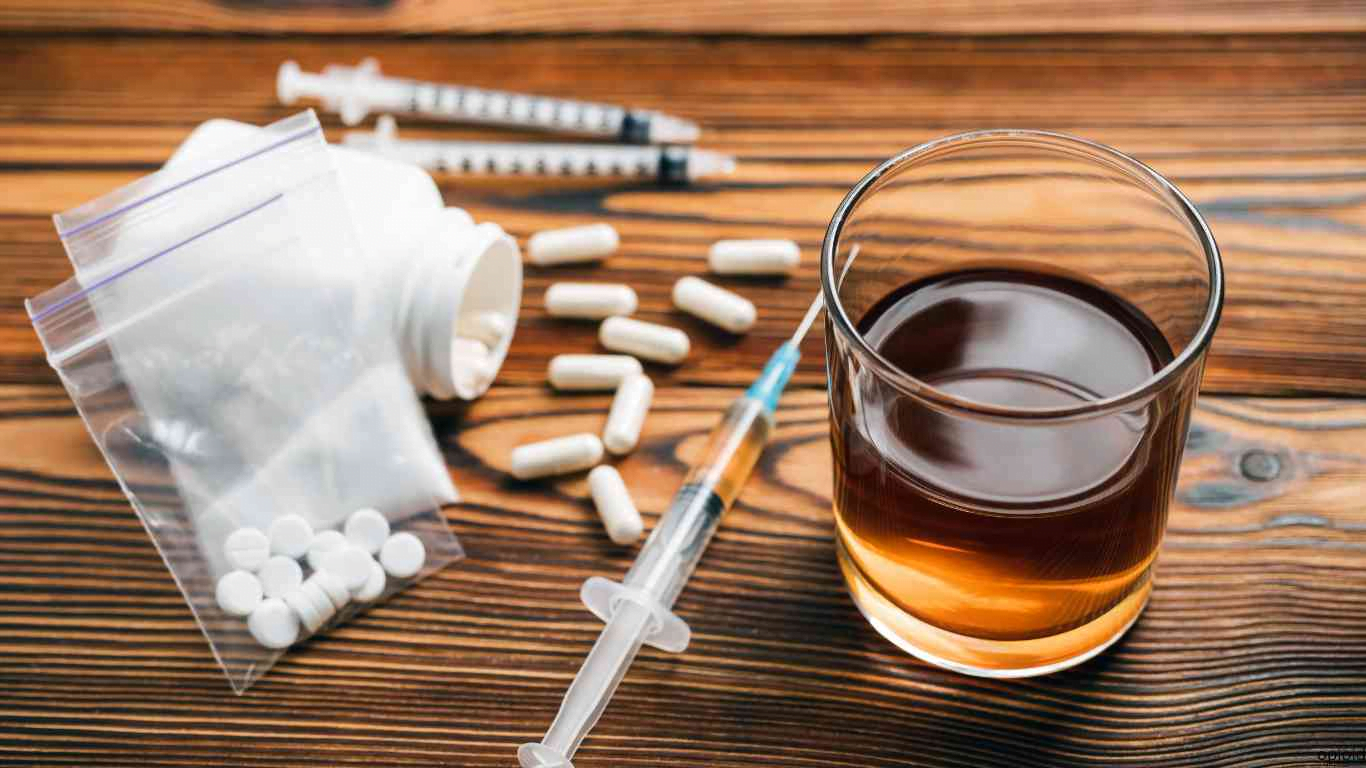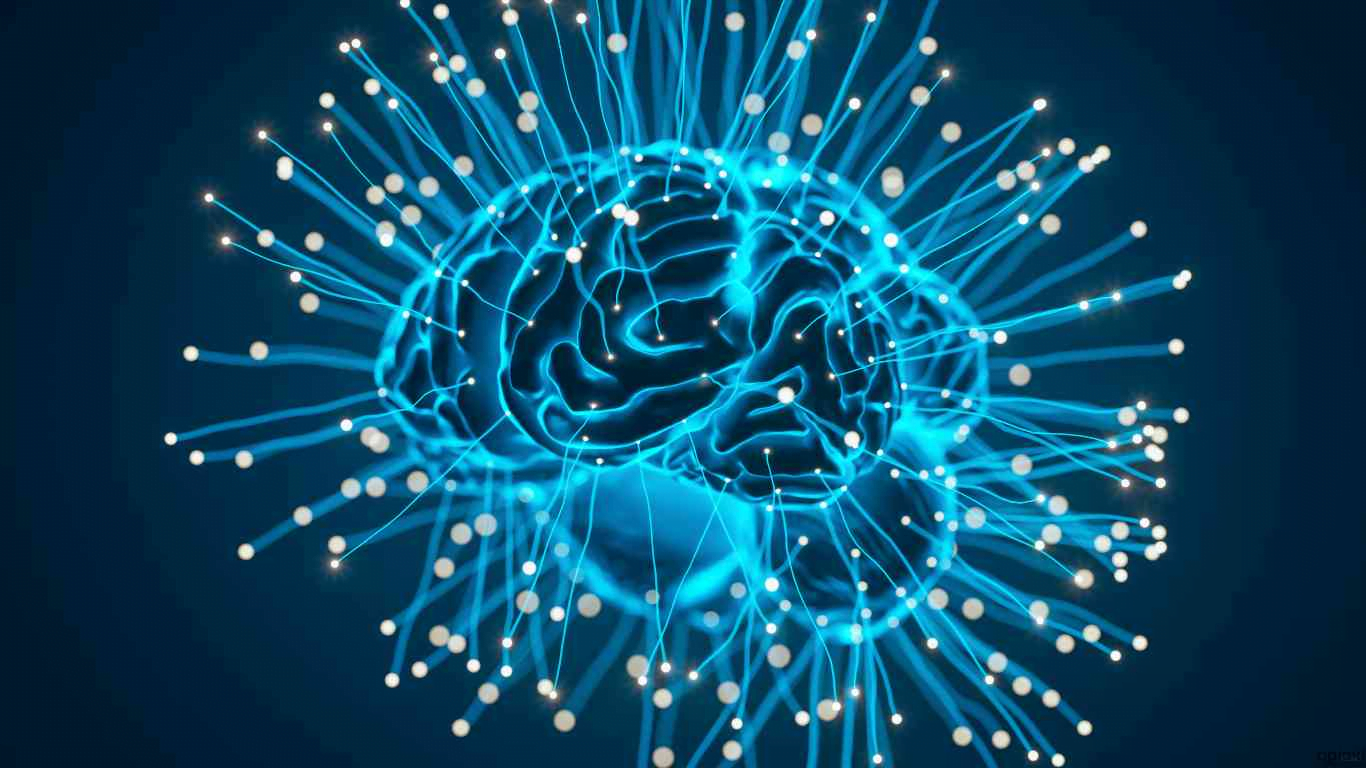Addiction is the pathological dependence on a particular substance, often referred to as substance abuse, that impacts many parts of a person’s life, including behaviors and impairing physical, mental health, and social functioning.
The negative consequences of addiction can include financial issues, destructive behavior, relationship issues, family conflict, and negative feelings.
Common addictions can occur in various types of substances or behaviors such as drugs, alcohol, gambling, prescribed medications, tobacco use, heroin use, regular cocaine, and other drugs, etc.
Family members of persons suffering from substance use disorder have a great role to play in their journey to recovery as they will be providing family therapy.
What Types of Addictions are There?
Substance Addiction
Substance addiction, or substance use disorder, involves the compulsive use of drugs or alcohol despite the numerous negative consequences it brings to a person’s life.
Substance addiction can lead to severe physical and mental health issues, legal problems, and social dysfunction, impacting many parts of a person’s life, including impaired learning, decision-making, memory, judgment, organ damage, increased risk of contracting communicable diseases, depression, and suicide.
In the past decade, overdose deaths have been on the increase most especially among young adults and young women. Tobacco products or heroin use have had a great toll on their overall health leading to spending money on addiction treatment.
Substance Abuse and Substance Use Disorders
Substance abuse refers to the harmful or hazardous use of psychoactive substances, including illicit drugs, prescription drugs, and alcohol. Substance use disorders develop when regular use leads to dependence and addiction.
Substance abuse can dominate a person’s life, leading to physical brain changes, impaired learning, decision-making, memory, judgment, organ damage, increased risk of contracting a communicable disease, depression, suicide, and impacts on relationships, legal problems, and financial woes.
For example, heroin addiction, alcohol use disorder, and marijuana addiction are significant forms of substance addiction. The American Psychiatric Association’s Diagnostic and Statistical Manual classifies these as serious mental disorders that require immediate attention.
Mental Disorders and Compulsive Behavior
Behavioral addiction often coexists with mental disorders, including depression, anxiety, and sleep disorders. Mental disorders and compulsive behavior can dominate a person’s life, leading to various negative consequences such as impaired learning, decision-making, memory, judgment, organ damage, increased risk of contracting a communicable disease, depression, suicide, and impacts on relationships, legal problems, and financial woes.
Compulsive behavior driven by the need to escape negative feelings or achieve pleasure leads to addiction.
For instance, an eating disorder can significantly impact a person’s mental health, leading to severe consequences if left untreated. These addictive behaviors highlight the importance of behavioral therapies in addiction treatment.
Prescription Drugs and Prescription Medications
The misuse of prescription drugs is a growing concern. The misuse of prescription drugs can dominate a person’s life, leading to various negative consequences such as impaired learning, decision-making, memory, judgment, organ damage, increased risk of contracting a communicable disease, depression, suicide, and impacts on relationships, legal problems, and financial woes.
Prescription users build tolerance and dependence, particularly with prescription painkillers, mood-regulating drugs, and sleeping pills. This misuse leads to substance addiction and substance abuse disorder.
Prescription medications, when abused, produce mind-altering effects similar to illicit substances, leading to addiction medicine being a crucial field in addiction treatment.
Illicit Drugs and Illicit Substances
Illicit drugs such as heroin, methamphetamine, and cocaine are major contributors to substance addiction. Heroin addiction, for example, leads to severe withdrawal symptoms, increased risk of overdose deaths, and the spreading of diseases among heroin users contracting infections through shared needles.
The use of illicit substances not only causes immediate consequences but also long-term adverse effects on a person’s life, including physical health, mental health, impaired learning, decision-making, memory, judgment, and increased risk of legal problems and financial woes.
Psychological Dependence in Substance Abuse
The term psychology is generally meant to refer to behavioral processes that relate to emotions or the mind. Behavioral addiction refers to various types of addictive behaviors such as internet addiction, gambling, overeating, and compulsive behaviors like television compulsion, which can significantly impact an individual’s life.
Psychological dependence can dominate a person’s life, leading to various negative consequences such as impaired learning, decision-making, memory, and judgment, and impacts on relationships, legal problems, and financial woes.
The term psychological dependence is generally meant to describe the emotional and mental processes that are associated with the development of, and recovery from, a substance use disorder or process addiction. Behavioral addictions share similarities with substance addiction, including the development of tolerance, loss of control, and psychological and physical withdrawal symptoms.
The psychological side of addiction represents the compulsion of the mind to drink or use based on a perceived need the substance fills. This facet of addiction can occur even if the person doesn’t display physical dependency symptoms. Common behavioral addictions include shopping, gambling, gaming, and other compulsive behaviors that result in brief feelings of happiness but can lead to significant negative effects.
Psychological addiction is when a person is emotionally tied to a drug based on a mental desire for it. This is very common for people who use drugs that may not cause severe withdrawal symptoms when they aren’t using.
For example, users of marijuana often do not think they’ve developed an addiction because they can physically go without using it.
However, their mind creates an extreme desire for it that can negatively impact them in many ways causing loss of sleep, anxiety, depression, and changes in appetite.
Footprint recovery says Based on some of the older notions of addiction, a psychological addiction means that the person does not experience significant physical withdrawal symptoms when they cut down their dosage or stop using the drug.
Instead, they primarily suffer from emotional symptoms. Psychological symptoms include cravings, depression, anxiety, trouble sleeping, and problems with concentration.
In the past, many clinicians considered psychological addictions to be less severe than physical addictions.
Some psychological dependencies are:
- Not capable of stopping drug usage
- Abuse of drugs even when health problems arise
- Using narcotics to deal with life’s problems
- Obsession
- Taking a gamble
- Taking larger doses
Psychological addictions imply that there is a mental craving for this drug. It doesn’t mean that the individual needs the substance to avoid withdrawals, but that they mentally feel like they need the drug in their life to function.
An individual’s mental or emotional attachment to a drug or substance can lead to a physical addiction when used repeatedly.
Physical Dependence and Withdrawal Symptoms
Physical addiction on the other hand manifests itself in a physical way affecting the body. Physical addiction dependency is a chemical level change in the brain that is changed by the addictive chemicals in the drugs.
This can dominate a person’s life, leading to various negative consequences such as impaired learning, decision-making, memory, judgment, organ damage, increased risk of contracting a communicable disease, depression, suicide, and impacts on relationships, legal problems, and financial woes.
Over time, drugs change the chemistry of the brain. In some cases of physical addiction, the brain’s ability to create dopamine is affected. Prescription drugs, such as stimulants like Ritalin and Adderall, are highly habit-forming and associated with severe withdrawal symptoms, leading to increased risk and use of overdose.
This is typical with drugs such as cocaine, heroin, and methamphetamine, and can lead to long-term problems like depression, addictive behaviors, mood swings, and various withdrawal symptoms.
Withdrawal from a physical addiction can be mild to severe, depending on the type of drug your body is addicted to. Once a person begins using it on a daily or regular basis, the body becomes dependent on that drug. The rise in prescription medication abuse, particularly opioids, has significantly contributed to the increase in overdose cases in the United States.
This means the cells can’t function as they have been without the drug they have become accustomed to. As a result, painful withdrawal symptoms set in, causing most people to reach for the drug to make the pain go away.
Take for example, if you drink coffee every morning to wake yourself up, your body might come to rely on it to be alert and upright.
If you decide to skip the coffee one morning, you’ll probably have a pounding headache and feel generally crummy later in the day. That’s physical dependence at play.
What is the Difference Between Physical Dependence and Psychological Dependence in Behavioral Addiction
Yes, there is a difference between physical dependence versus psychological dependence. Physical dependence is considered tolerance and withdrawal, similar to substance addiction. Both physical and psychological dependence can dominate a person’s life, leading to various negative consequences such as impaired learning, decision-making, memory, judgment, organ damage, increased risk of contracting a communicable disease, depression, suicide, and impacts on relationships, legal problems, and financial woes.
Psychological dependence is the dependence on drugs or the substance of choice. Another difference between physical dependence and psychological dependence is the fact that physical dependence affects your body and psychological dependence affects your behavior.
The difference between physical and psychological dependence lies in how your dependence makes you feel.
Physical addiction occurs with the most widely abused substances like heroin, meth, and alcohol. You know you suffer physical addiction when you experience negative physical side effects as part of your drug use or withdrawal.
Psychological addiction occurs when you do not suffer physical withdrawal from the substances you use, but you do suffer mental effects. Marijuana and cocaine are two of the most commonly used drugs that cause psychological dependence.
Furthermore, almost anything can cause psychological addiction, whether you abuse drugs or alcohol, or pursue a particular activity. Anything pleasing you can cause urges within you to recreate those feelings of pleasure.
If you repeat the activity to recreate these feelings time and again, you risk developing an unhealthy attachment as psychological dependence.
Substance use disorders, like other chronic diseases, can be successfully treated and managed. Treatment options include inpatient and outpatient programs for substance use disorders, as well as outpatient mental health services.
Immediate Consequences and Long-Term Impact
Behavioral addictions lead to immediate consequences such as financial problems, strained relationships, and legal issues, significantly impacting many parts of a person’s life. The long-term impact includes chronic mental health problems and a diminished quality of life. Addiction treatment for behavioral addictions aims to mitigate these adverse effects and promote recovery, emphasizing the need for comprehensive addiction treatment programs.
Ibogaine Treatment for Addictions
Ibogaine treatment is gaining attention as a promising approach for addressing various types of addiction, including both substance and behavioral addictions despite its legal status. Ibogaine treatment can positively impact a person’s life by addressing addiction, helping to restore balance, and improving overall well-being. Derived from the root bark of the African plant Tabernanthe iboga, ibogaine has been used traditionally by indigenous people for ceremonial and healing purposes.
In modern addiction medicine, ibogaine is valued for its potential to interrupt addictive behaviors and alleviate withdrawal symptoms associated with drug addiction. Unlike conventional addiction treatments, which often require long-term therapy and medication, ibogaine treatment offers a more immediate intervention, addressing the root causes of addiction in a single or a few sessions.
One of the most compelling aspects of ibogaine treatment is its ability to produce profound psychological insights and promote emotional healing. During an ibogaine session, individuals often experience intense, introspective visions that help them confront and resolve underlying issues contributing to their addiction. This therapeutic process can significantly reduce cravings and mental distress, making it easier for individuals to abstain from substance use and engage in healthier behaviors.
Additionally, ibogaine’s impact on the brain’s neurotransmitter systems can mitigate physical withdrawal symptoms, providing relief from the severe discomfort that often accompanies detoxification. This dual action—addressing both the psychological and physical aspects of addiction—positions ibogaine as a unique and potentially transformative treatment option.
Ibogaine Mechanism of Action in Treating Substance Dependence
The mechanism of action of ibogaine in treating substance dependence involves complex interactions with the brain’s neurotransmitter systems.
Ibogaine primarily affects the brain’s dopamine and serotonin pathways, which are crucial in regulating mood, reward, and addiction. By addressing these pathways, ibogaine can positively impact a person’s life by reducing the compulsion to use addictive substances and helping to restore normal brain function.
By modulating these pathways, ibogaine helps to reset the brain’s reward system, reducing the compulsion to use addictive substances. This effect is particularly significant in cases of heroin addiction, where the brain’s dopamine system is heavily dysregulated. By normalizing dopamine levels, ibogaine can alleviate cravings and reduce the risk of relapse.
Another critical aspect of ibogaine’s mechanism of action is its effect on the NMDA receptors in the brain. These receptors play a key role in neuroplasticity and memory formation. Ibogaine’s interaction with NMDA receptors facilitates a state of heightened neuroplasticity, enabling the brain to rewire itself and form new, healthier neural connections.
This process is essential for overcoming addiction, as it allows individuals to break free from ingrained patterns of addictive behavior and develop new coping strategies.
Additionally, ibogaine has been shown to increase levels of glial cell line-derived neurotrophic factor (GDNF), a protein that supports the survival and growth of neurons. This neurotrophic effect further aids in the recovery of brain function and resilience, making ibogaine a powerful tool in the treatment of substance dependence.
Conclusion
We have learned throughout this podcast that there are many different types of drugs and each type has its own set of dangers. Physical dependence is a body’s adaptation to the presence of a drug, resulting in withdrawal symptoms if use is discontinued. Psychological dependence means that you are psychologically addicted to a drug and can’t stop thinking about it. Alcohol use disorder (AUD) is prevalent and poses significant health risks, impacting many parts of a person’s life.
I’m sure you can think back to times when someone close to you was struggling with a dependency on drugs or alcohol, anxiety, or depression and they were the best version of themselves without it. The risks of alcohol overdose are severe and can lead to fatal consequences.
Abstinence-based addiction treatment programs may seem like a good option, but they rarely work in any lasting way. Drug abuse extends beyond substance abuse and includes behaviors like gambling and compulsive media use, which share core indicators with substance addiction.
Ibogaine treatment is an ideal solution for individuals who suffer from both physical dependence and psychological dependence. Mental disorders can exacerbate the risk for both substance use disorder and behavioral addiction.
The treatment uses ibogaine as its primary active ingredient, derived from a plant called Tabernanthe Iboga by African healers called “The Divine Messenger.” Addressing substance abuse disorder with personalized treatment plans is crucial for effective recovery.







